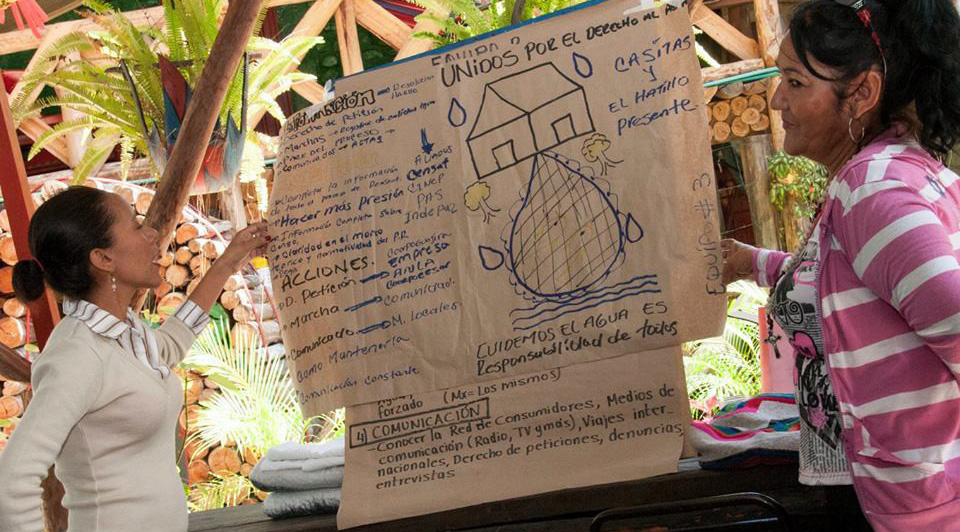The Colombian government's website on business and human rights (in Spanish)
Website of the Fundación Ideas para la Paz
NGO Indepaz, business and human rights (in Spanish)
NGO Tierra Digna, business and human rights (in Spanish)
Partner organization PAS (in Spanish)
In terms of business and human rights, Colombia has gained a progressive image over the last few years; but this has little to do with reality. More than ten years ago, the Voluntary Principles on Security and Human Rights were adopted, and the Guias Colombia for non-extractive industries came a little later. In 2014, Colombia established a public policy on Business and Human Rights and, in December 2015, presented its national action plan (NAP) for business and human rights as one of the first emerging countries. Although the country received a lot of praise, there was a volley of criticism from human rights organizations. They found fault with the superficial consultation process, the non-participation of the affected communities, the voluntary nature of the measures, and the strong orientation toward the needs of businesses.
The peace process does not mean that conflict no longer exists. The investment protection and free trade agreements and the opportunities for multinational companies to take legal action associated with them further limit the Colombian government’s room for maneuver in terms of promoting peace and social justice considerably. Dealing with large businesses therefore still presents major challenges: human rights violations due to economic interests are still the order of the day, and a rigorous and transparent human rights due diligence assessment is rarely implemented. Social reforms have been neglected in the peace process, except when it comes to land, and the impunity of crimes that serve the interests of businesses also remains unresolved.
The Swiss-Colombian working group ask! is committed to ensuring that Swiss companies in Colombia respect human rights and protect the environment. It promotes mandatory standards, due diligence obligations for human rights, and transparent reporting. Working with Colombian partner organizations, it guides and supports trade unions, communities, and social organizations whose rights have been affected by the activities of Swiss businesses.


